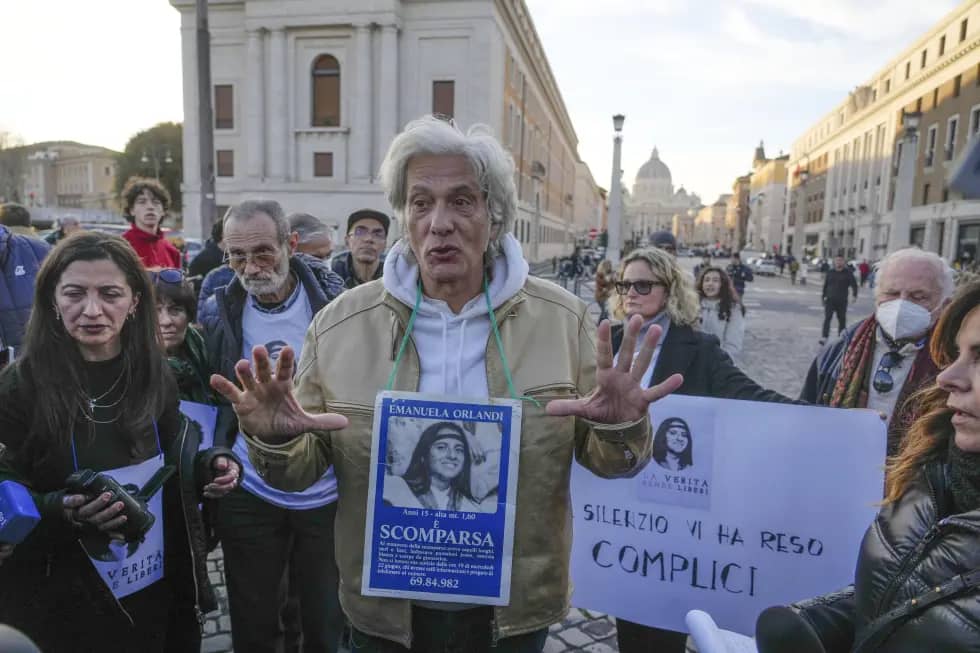ROME – A new sexual abuse scandal in Italy, featuring a prominent former official of the country’s largest Catholic organization, has raised questions both about responsibility when the alleged offender is a lay person rather than a cleric, and also about when suspicions should be publicly disclosed in an effort to prevent further abuse.
Mirko Campoli, a 46-year layman and former national leader of the youth wing of Azione Cattolica (“Catholic Action”), was arrested May 23 on charges of molesting at least four minors aged between 10 and 14 at the time of the alleged offenses.
After being presented with the charges, Campoli was placed under house arrest on the condition that he wear an electronic monitoring bracelet on his ankle.
Founded in 1867, Azione Cattolica is by far the most widespread lay Catholic group in Italy. At its peak in the late 1950s, it counted more than three million members; today it claims a following of around 270,000.
Campoli was the director of the organization’s youth branch from 2002 to 2008. He then took a position in the schools office of the Diocese of Tivoli, located about 45 miles east of Rome, and served as a religion teacher and vice-director of a large high school in Tivoli, while also acting as the diocesan coordinator for Azione Cattolica.
Most recently, Campoli worked in a home for families with victims of sexual abuse in Rome.
Campoli also authored a number of publications about religious education for young people, and produced a series of faith formation videos for youth during Italy’s Covid lockdown. He also promoted church-run youth camps on the Sat2000 television network of the Italian bishops’ conference.
A prosecutor described Campoli as “a man impossible to hate, a second father, somebody known and liked by all, capable of buying the silence of his victims with costly gifts but also by listening to them, understanding them, using words adapted to sooth the anguish of adolescence.”
His four accusers, who have been identified in the Italian press only using pseudonyms, say that Campoli abused them serially beginning in 2016, often during school- and church-sponsored trips. One, for example, alleges that Campoli abused him during an overnight outing to Gardaland, one of Italy’s best-known theme parks located near Verona.
According to media reports, suspicions against Campoli surfaced as early as 2020, when he was fired from the Tivoli school where he had been working and his permission to serve as a religion teacher was withdrawn by Bishop Mauro Parmeggiani.
The diocese did not publicly disclose the reasons for dismissing Campoli, which, acording to critics, enabled him to secure a new position at the family home in Rome where he reportedly continued to engage in abuse.
Prosecutor Francesco Menditto of Tivoli suggested during a May 23 news conference that church authorities had failed to make a full report to the civil justice system.
“If we had had all the documentation from the religious authorities, we would have stopped him sooner,” Menditto said.
Parmeggiani, a former priest secretary to the powerful Cardinal Camillo Ruini, the Vicar of Rome and president of the Italian bishops’ conference under Pope John Paul II, immediately disputed that claim.
“As soon as the bishop learned of alleged abuse at the diocesan family counseling center, of which he’s the president, an immediate report was made to the public security authorities,” a statement from the Tivoli diocese said.
“When an accusation was received by the diocese from the parents of the presumed victim, and the charges were determined to be credible, authorization to teach the Catholic religion was immediately withdrawn from the instructor, who no longer had any pastoral assignment in the diocese,” the statement said.
In a May 25 news conference, Cardinal Matteo Zuppi of Bologna, president of the Italian bishops’ conference, defended Parmeggiani’s response.
There was “an immediate assumption of responsibility on the part of the bishop to face the problem,” Zuppi said. “We can’t accept accusations 0f an attitude of cover-up.”
From Nov. 13-16, the Italian bishops’ conference will hold an extraordinary assembly in Assisi devoted to the protection of minors.
Local media have pointed, however, that as late as April 2021, Tivoli’s diocesan council posted a note on its Facebook page thanking Campoli “from the heart for his work in these years,” and his posts on diocesan social media channels remained available until his recent arrest.
Menditto placed some of the blame for not taking action earlier on a widespread inclination to keep abuse charges quiet.
“The climate of environmental omertà is similar to the mafia,” he said. “Parents don’t want to accept the violence their child may have suffered, so they try to cover it up, to hide it, and they don’t believe the minor,” he said.
“Often they only talk to religious authorities, who tend to try to manage the situation internally,” he said.
According to some observers, part of the difficulty in the Campoli case is blurred lines of responsibility.
It’s not clear, they say, whether it was Azione Cattolica, the Diocese of Tivoli, the school where Campoli taught, local prosecutors and police, or some other institution that should have shouldered primary responsibility for his supervision, or for making the charges against him public.
















